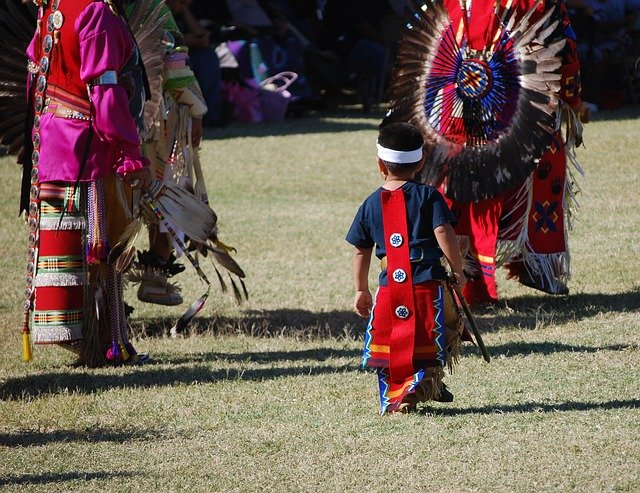
There was a time in US history where the number of tribal children removed from their homes and sent to boarding schools around the country as a government-sanctioned part of their “re-education”. They were forbidden to speak their native languages, forbidden to practice their native beliefs, and forbidden from wearing their native clothing, or engaging in anything that represented their native culture in any way. Parents who refused to allow their children to be taken away were denied rations and jailed.
It was a form of forced assimilation. Native American children were taught to speak American English only, wear “white people’s clothes,” and convert to Christianity. They were even required to give up their “Indian” names and take on “white” names. In the words of U.S. cavalry captain Richard Henry Pratt, who founded the very first such boarding school, the purpose of this endeavor was to “kill the Indian in him, and save the man.”
When did the forced assimilation of Native American children?
The answer to that question is complex and based on who you ask you’ll get a variety of different answers. What we know for sure is that attendance by Native children to “Indian boarding schools” continued throughout the first half of the twentieth century, and doubled in the 1960s. Which is when Bertram Hirsch got involved.
Hirsch, a New-York based attorney working for the Association on American Indian Affairs (AAIA), was sent to North Dakota to deal with a tribal kinship dispute case. It didn’t take long for Hirsch to realize that alarming numbers of Native children were being removed from their homes because their mothers were being deemed ‘unfit’ by social workers (code at the time for “poor”) and being placed in the homes of white families. Data collected at the time shows it was as high as 35% of all native children.
What is the Indian Child Welfare Act?
Hirsch audited the child welfare agencies of all 50 states twice during the late 60s and early 70s, and his data revealed a cultural crisis. He then crafted a bill aimed at protecting Native American children, which was passed “at the 11th hour” just before the 95th Congress came to a close on October 24, 1978.
This law, known as the Indian Child Welfare Act (ICWA) defined the political relationship between two sovereigns – tribes and states. As explained by The Chronicle of Social Change, “It designated that tribes can and must act as parents for their children, just as states do with non-Native children when biological parents cannot. And it required that preference be given to tribal communities when children must be removed from their homes.” Since the late 70s there has been a distinct reversal in how Native children’s cases are handled by child welfare agencies. However, that is now being challenged again…
Children should stay with their families whenever possible.
If there is one core belief that drives the work we do as child abuse defense attorneys, it’s this: whenever possible, children should remain with their parents. As attorneys, we believe that unless a child is truly at risk of violence, they should be cared for by their parents, and allowed to live in their own homes with their own families. We have seen the damage done by government overreach, and as parents, it breaks our hearts to see the pain suffered by so many Michigan parents who lose their children to a corrupt and broken child welfare system.
Join us next time for a look at the current Indian Child Welfare Act challenge that is once again before the 5th U.S. Circuit Court of Appeals. It has been an unusual case so far, and tensions are high on both sides of the line. Until then though, if you’re accused of neglecting or abusing a child by Michigan CPS and your children are in danger of being removed from your care, call us at 866 766 5245. Our aggressive and experienced CPS defense attorneys can help you fight for your family’s future and your parental rights.

